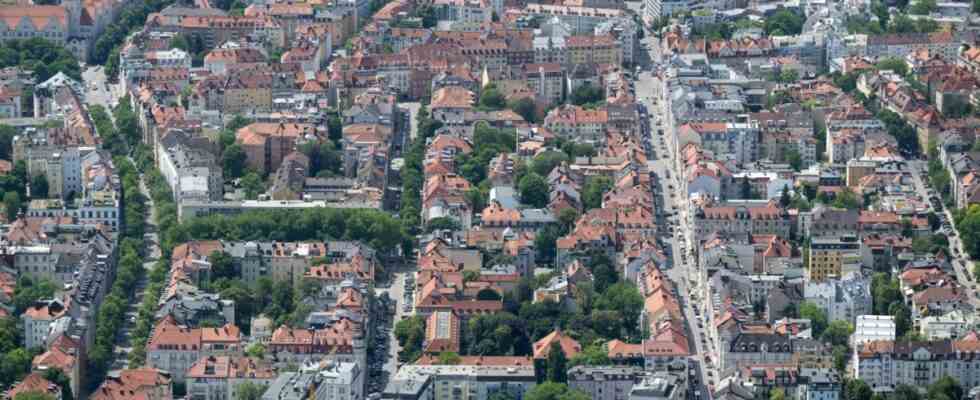When Stephan Kippes from the market research institute of the German Real Estate Association (IVD) held one of his regular studies, the following sentence was always written at this point – with variations – in recent years: Prices only go in one direction, namely upwards. So it is a bit of a sensation that Kippes said this sentence when presenting the current report on properties for sale in Munich and all of Bavaria: “Things have turned around.” It is an “absolutely exciting time”.
In fact, the one or the other slight downward bend can be seen in the curves for Munich. For example, in the case of condominiums (existing stock, good living quality): While buyers had to pay an average of 9,500 euros per square meter in spring, it is now 9,450 euros in autumn. Or mid-terrace houses (new build, good quality of life): such a cost 1.48 million euros in the spring, it’s now 1.47 million. And then there is the semi-detached house (new building, good quality of life): 1.98 million euros in the spring, now 1.97 million. The two million euro limit has not been exceeded for the time being.
At the same time, the number of properties offered on the market is increasing: from January to August there were almost as many in Munich as in the whole of 2021 – “because there is more lying around on the market,” as Kippes said. It is questionable whether all this can already be classified as “final sale”. But the drop in prices is “very significant,” says the market researcher. In other Bavarian cities, this trend has not yet arrived, with the emphasis on “not yet”. There you can still find a plus sign in most segments, so prices continue to rise – unlike in the state capital.
Brokers must show “that they have also mastered the fine art of selling”
In Munich, the fluctuations are even higher in some market segments, said the broker Ralf Heidemann. He notes even greater cuts, especially in the case of objects with “positional problems”. In other words, everything no longer sells at any price. For the surrounding area, Dagmar Hauser from Puchheim reported that even plots of land in the local model were returned because of the interest burden. “It’s a difficult thought,” said Kippes, “that local models no longer work.”
The brokers Stefan Grandauer from Rosenheim and Oliver Hold from Kempten reported that during the pandemic, many Munich residents moved to their regions because of the better home office opportunities. But there are now properties there that are “extremely difficult to trade”. So far, the difficulty for brokers has been acquiring properties, Kippes summarized; selling was the easier job. Now brokers have to show “that they have also mastered the fine art of selling”.
The developers had become much more cautious, he explained. They are generally in a difficult situation: the costs for materials have risen sharply and are difficult to calculate, and sometimes there is also the problem of getting craft companies to do the work. New construction activity has therefore “developed sharply downwards”. The goal of Federal Building Minister Klara Geywitz (SPD) to build 400,000 new apartments per year seems “even more daring” under these circumstances, according to Kippes. And in view of the population growth forecast for Munich, one is faced with a “huge task that we are not remotely able to solve at the moment”.
How are the prices going? “We’re flying blind,” said Kippes. Predictions are difficult; so many different factors are currently affecting the market, interest rate developments, inflation, war in Ukraine – and the corona pandemic is not over yet, it has only receded into the background. And what all this means for Munich rents? “We’re still evaluating it,” says Kippes. The next market report will definitely come.

